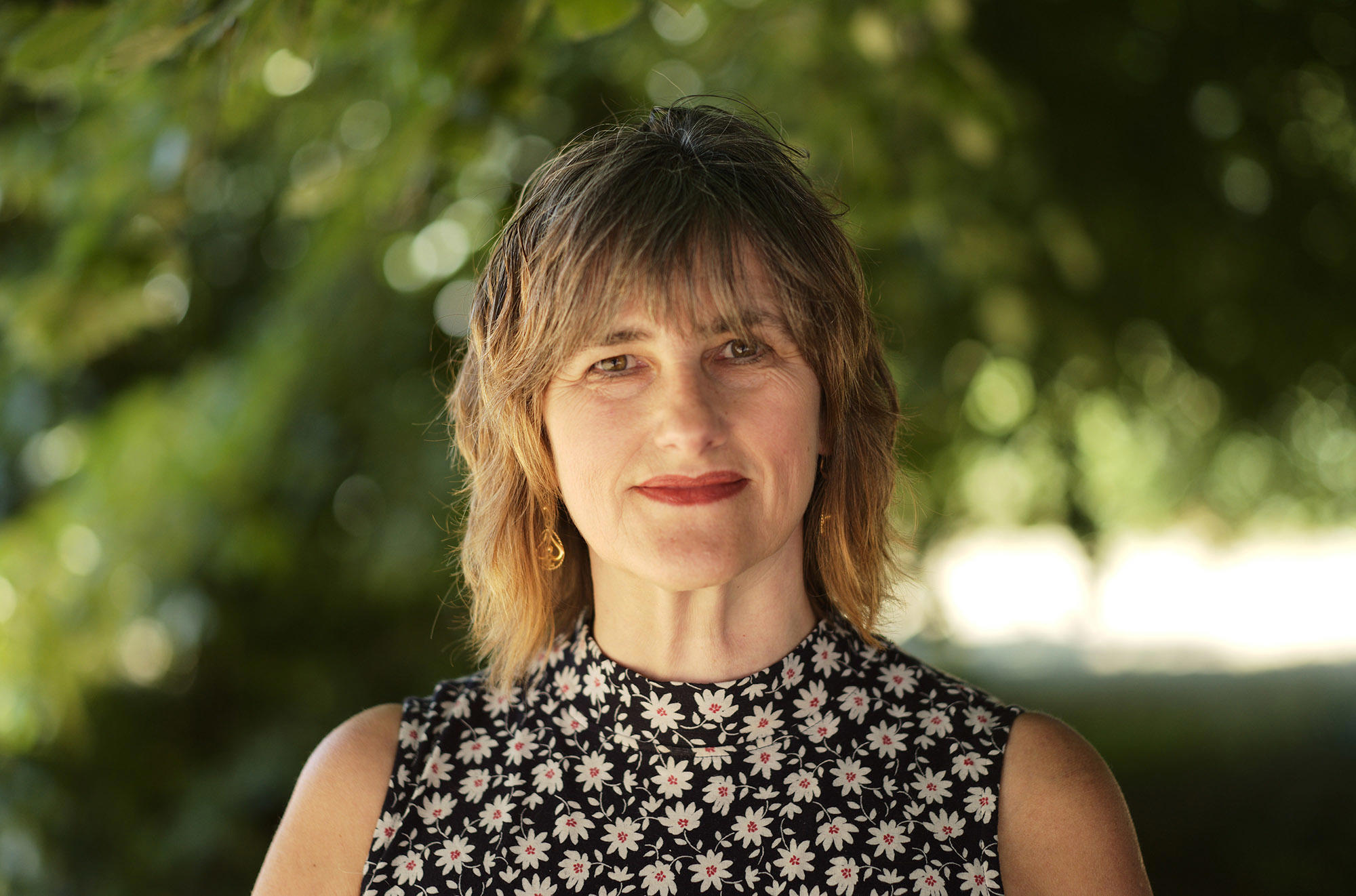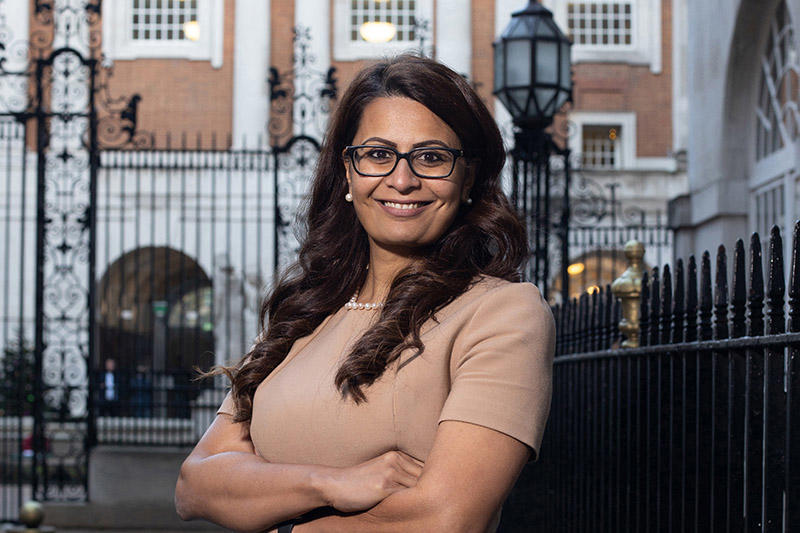‘It’s absolute trust. If you have continuity of care you have trust that you will see patients not just for the big complex issues, but the smaller issues – you will see them for the urine infections, the ear infections, the contraceptive advice and things like baby checks and post-natal checks which are really important.
‘It’s important to be involved in people’s care right the way through their lives.’
Gavin Shields (pictured above) has first-hand experience of the benefits of a strong, stable and enduring relationship between patients and doctors. When Dr Shields finished his specialty training, some 28 years ago, he was approached to become a partner at the GP surgery in Coventry where his mother worked and had done through his upbringing.
Dr Shields and his mother have seen several generations of the same family come to them during the most vulnerable moments of their lives. The result? A trusting relationship – and a decreased reliance on other services. ‘If they know you can give them sensible advice across a range of health issues they will believe and trust what you say. I think that’s absolutely vital for keeping people out of A&E and away from stretched out-of-hours services.
‘They know they can trust the advice you’ve given. On a Friday if I’ve seen their child they know I’ve seen that child 10 times over the year and they trust the management plan I’ve given over the weekend and they will trust and believe in what I say. That continuity is what we want.’
‘In decline’
Continuity was a hot topic at the UK conference of LMCs in May, with representatives calling on the BMA GPs committee to negotiate a GP contract that incentivises continuity of care.
GPC chair Farah Jameel said the evidence of the benefits of continuity was mounting but that ‘high-quality, cost-effective and timely care is under-estimated and poorly valued by policymakers’ and was ‘in decline’ in this country.
Speaking at the event she said: ‘If continuity of care is to be rewarded and preserved, it will need to be measured and monitored and it will need new payment mechanisms. So we’ll need to spend some time thinking about these matters. ‘We must reward continuity of care and it is right that we ask for it. We’ll need courage – from policymakers, from us [and] from parliamentarians.’
It’s important to be involved in people’s care right the way through their livesDr Shields
A 2018 report by the Nuffield Trust found ‘there is a large body of evidence to demonstrate that continuity of care delivers significant benefits to patients and staff’ – citing better clinical outcomes for an array of conditions; reduced mortality; better uptake of preventive services; better adherence to medication; reduced avoidable hospital admissions; and better overall experience of care among patients who prefer continuity and are able to obtain it.
Ultimately, all of these things mean better outcomes and reduced costs. The Parliamentary health and social care committee recently heard evidence about the benefits of continuity of care from several experts.
Among them, Steinar Hunskår, a professor in the University of Bergen’s global health and primary care department, said a major study in Norway found a 25 to 30 per cent reduction in mortality for patients with the longest observed relationship with their regular GP.
I have a strong idea on what is happening with my patients’ medical story and I know what has happened in the pastDr Grant
These are the experiences of Pauline Grant, a GP who still works with a personal patient list – around 2,000 patients – in Southampton.
Dr Grant says: ‘It’s the social side but it’s also a medical safety issue. All my results come to me. All the documents and letters come to me. I have a strong idea on what is happening with my patients’ medical story and I know what has happened in the past. I know when a course of medical action might be dangerous.
 GRANT: Personal lists can be ‘scary’ but you learn quickly
GRANT: Personal lists can be ‘scary’ but you learn quickly
‘I pretty much know which patients are allergic to penicillin, for example. I still ask, but I do know.’ Dr Grant adds: ‘If I’m treating somebody, for example in palliative care, if I’ve looked after them when they’re alive I know what their attitudes are, I know quite a lot about them and I can look after them much better when they are dying – I know how far they might want to go with treatment and whether they believe in the medical model for example.’
New incentives needed
According to Kate Sidaway-Lee, a research fellow from the St Leonard’s medical practice in Exeter, fewer than 10 per cent of practices operate on a personal list basis. Speaking to the health and social care committee, Dr Sidaway-Lee said the first step to increasing that number was to begin measuring continuity of care.
And London GP Rebecca Rosen, who is also a health policy analyst at the Nuffield Trust, attributed the low numbers, at least in part, to there being too many funding ‘micro-incentives’ attached to existing priorities in general practice.
She calls for new models of primary care to prioritise access and continuity, rather than continuity simply being added to existing funding streams.
Proposing the local medical committees conference motion – a motion which called for a move away from target-based contracts to rewards for continuity – Bristol GP Sam Creavin said continuity would provide an ‘incentive to sort out the problem properly first time’.
He added: ‘Continuity can be measured – there might need to be some debate about how, but it can be done. Placing a modest financial value on continuity would change our behaviour in a way that would improve outcomes for patients and our own job satisfaction. ‘Ultimately, if we don’t have continuity with our patients, then we are just a less well equipped, less well staffed and more easily accessible version of A&E.’
I pretty much know which patients are allergic to penicillin, for example. I still ask, but I do knowDr Grant
In May, GPC England passed policy reaffirming commitment to the GP independent contractor model, which chair Dr Jameel linked to continuity of care.
Dr Jameel said: ‘We know that patients appear to benefit from continuity of care, with the quality, strength and consistency of their relationship with their family doctor having a significant impact on their health outcomes. All of this and more is possible through the independent contractor model.’
Dr Shields agrees. ‘Ultimately I think there needs to be a recognition that the partnership model helps keep stable practice teams, helps maintain core practices and I think there needs to be a recognition of the model which I feel has been increasingly undermined. I think there needs to be work to protect the core funding into our contract to allow stabilisation of practices as the building blocks of local stable teams.’
 JAMEEL: New payment mechanisms will be needed
JAMEEL: New payment mechanisms will be needed
Some doctors, however, think that continuity of care is a good aspiration but not necessarily one that is realistic to achieve.
Speaking at the LMCs conference Bedfordshire GP Christiane Harris suggested that a continuity-based contract may be impossible for GPs to deliver.
She said: ‘Sadly, given a declining workforce and the fact that as most of us are ageing we are finding it more difficult to work as many sessions as we did when we were younger – the one thing even the most dedicated advocate of the partnership model quickly realises is that we cannot offer the continuity of care that we would love to do.’
Dr Harris added: ‘The use of members of the MDT to fill the workforce gap makes continuity even more difficult.
‘The danger of passing this motion is we may end up voting for something we’re even less able to fulfil. By all means vote to end the tyranny of the quality and outcomes framework, but not to replace it with something we don’t have the means or the workforce to provide.’
These are concerns echoed by many doctors. Is it possible to innovate and improve continuity of care – even if that innovation is, to some extent, a return to past principles – in an NHS starved of resource and staff?
Reducing duplication
For Dr Grant there may be a degree of ‘learned helplessness’ about that sort of thinking, perhaps resulting from so many years of being continuously up against dwindling funding and rocketing demand.
‘We are all so busy that we haven’t got time to step back, we don’t have the capacity to take time off and look at the whole thing,’ Dr Grant says.
Dr Grant adds that she is able to manage her patient list better and build a relationship where people will trust her decisions about how urgent an appointment is.
On top of that there may well be a reduction in work due to being able to oversee everything that happens in each patient journey – with far less duplication and the potential to spot incoming problems more quickly.
We need to put our tape measures away and say this is just the right thing to doDr Shields
For many lay people and for some doctors the responsibility of that relationship might seem like a burden.
Dr Grant says: ‘When you first start with your personal list the first 18 months are very scary… But you can quickly learn. And you can quickly see the effect your actions have.’
Among Dr Grant’s suggestions for making a new system work would be for the Government to fund the equivalent of a salaried full-time equivalent GP for every practice to be a continuity champion for their patient list – with built-in time away from clinical work to help practices implement continuity.
It would be a ‘significant investment’ which would make ‘practices think seriously’ about the move. There are efforts continuing in parts of the country to make similar steps.
Do the right thing
In one part of south-west England, GPs have set up a programme where administrative staff are supplied to practices to help them organise and implement systems led by continuity of care. For Dr Shields it all, ultimately, comes down to what is the ‘right thing to do’.
As he says: ‘Continuity of care can be measured – there are ways of measuring it. But if you look at the evidence of continuity of care reducing admission, reducing investigations and reducing health anxiety I think sometimes we need to put our tape measures away and say this is just the right thing to do.
'Any future decisions or funding arrangements, I think, should be ensured that they are not destabilising continuity and are helping to protect continuity of care because I don’t want my colleagues to be working in a hot-desking, never-know-your-patients service. I think that would be demoralising for them and for us as patients – because we’re all patients in the NHS.'

